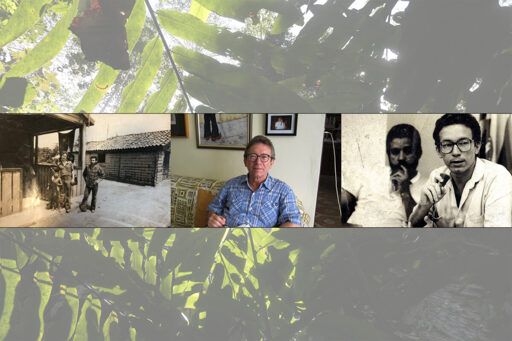Founder’s Briefs: An occasional series where Mongabay founder Rhett Ayers Butler shares analysis, perspectives and story summaries. In the tangled thickets of Brazil’s Amazon, a place known as much for its impenetrable forest as its opaque networks of corruption, Lúcio Flávio Pinto has spent nearly six decades cutting a solitary trail. For most of that time, he did so with little more than a pen, a dogged sense of duty, and a refusal to be bought, bullied, or silenced. That he is still alive is as much a defiance of probability as it is of power. Lúcio Flávio Pinto at home in 2012. Photo courtesy of Lúcio Flávio Pinto. Born in Santarém in 1949, Pinto began reporting at 16. The first article he published—an anniversary piece on the end of World War II—appeared on the front page of A Província do Pará, unedited. But it wasn’t the headlines of faraway wars that would define his career. It was the slow, grinding violence taking place in his own backyard: Land grabs, illegal logging, poisoned rivers, and the quiet erasure of the rainforest and those who lived in its shade. As Pará’s economy surged on the back of iron ore, soybeans, cattle, and hydroelectric power, Pinto’s journalism documented the hidden costs—the kind that do not appear on balance sheets. He worked for O Liberal, the dominant regional newspaper, before a schism with its proprietors in 1987 over an unpublished exposé led him to quit. He would never again draw a salary from…This article was originally published on Mongabay
From Conservation news via this RSS feed


